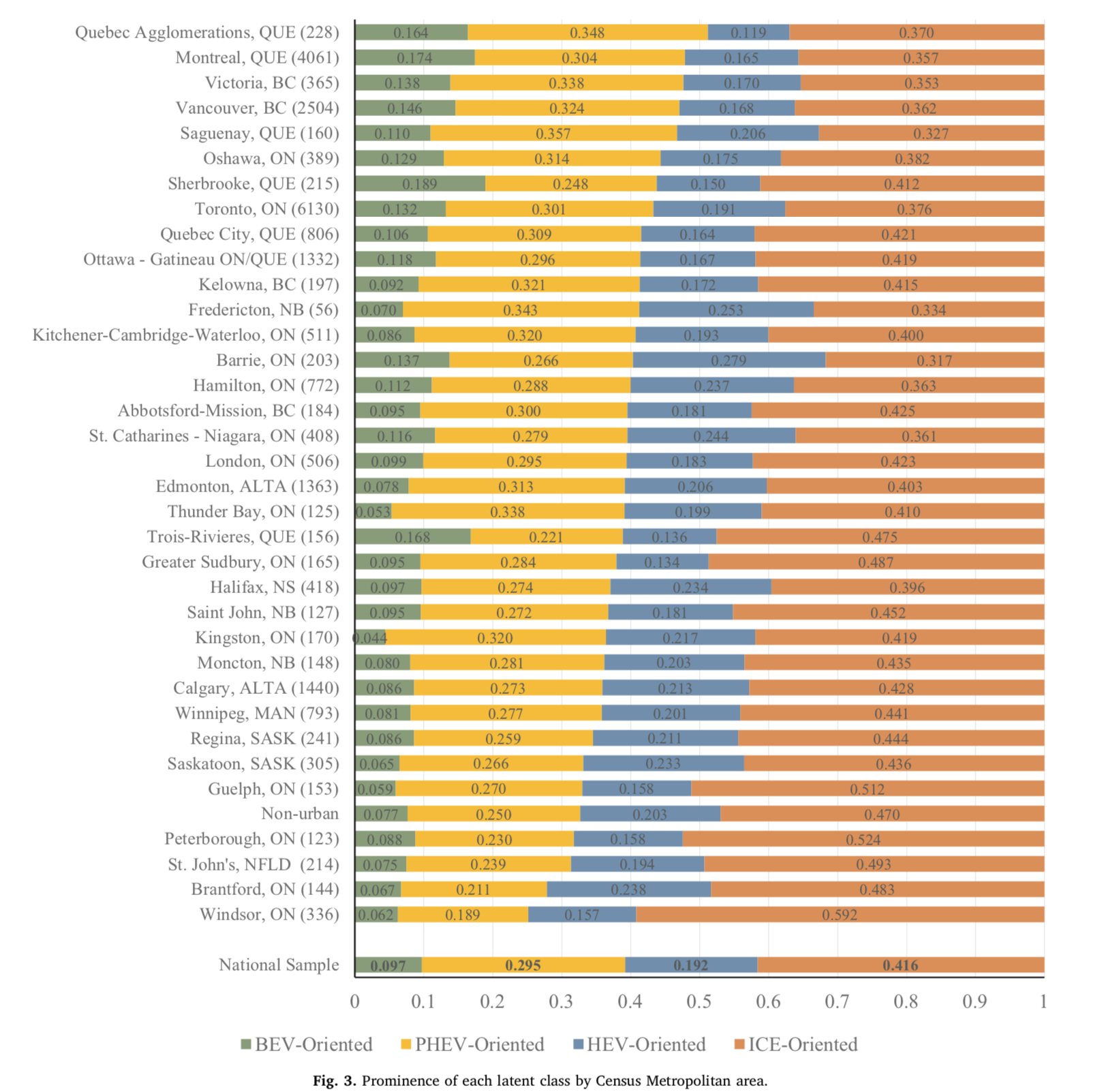How open are Canadian households to electric vehicles?

This paper reports on results developed from a 2015 national survey of Canadian consumers that sought to assess attitudes and preferences towards consumer electric vehicles. A latent class discrete choice model was developed based on stated preferences choices. Four classes emerged with each being oriented to one of the primary vehicle technologies considered. The dominant characteristics of the Internal Combustion Engine (ICE)-oriented class are purchase price sensitivity, EV scepticism and an apparent resistance to change; for the Hybrid Electric Vehicle (HEV)-oriented class it is reluctance to plug in and an unusual combination of high environmental concern and an acceptance to burn gasoline; for the suburban-oriented Plug-in Hybrid Electric Vehicle (PHEV)-oriented class it is measured optimism about plugging-in combined with an orientation to a replacement vehicle for the next purchase; and for the younger and most urban Battery Electric Vehicle (BEV)-oriented class it is the highest optimism about electric vehicles and a focus on positive aspects such as rapid acceleration and minimized maintenance costs. By orientation of household mindset, approximately 40% are ICE, 30% are PHEV, 20% are HEV and 10% are BEV. These results suggest considerable openness to electric vehicles. Willingness-to-pay for vehicle and charging attributes and incentives were calculated and are highly useful in interpreting the latent classes. The results feature interesting geographical variation which is captured at the level of Canadian metropolitan areas.
Click Here For The Full Article
Electric Mobility
